- French Tech Updates
- Posts
- 🇫🇷 French Tech Updates — May 12, 2025. Can Europe’s brain drain become a brain gain? 💡
🇫🇷 French Tech Updates — May 12, 2025. Can Europe’s brain drain become a brain gain? 💡
What you need to know this week in France: 🔬 Can Europe reclaim the lead in high-tech research? 🥊 Mistral takes on Microsoft, 🤖 OpenAI gets a French CEO.
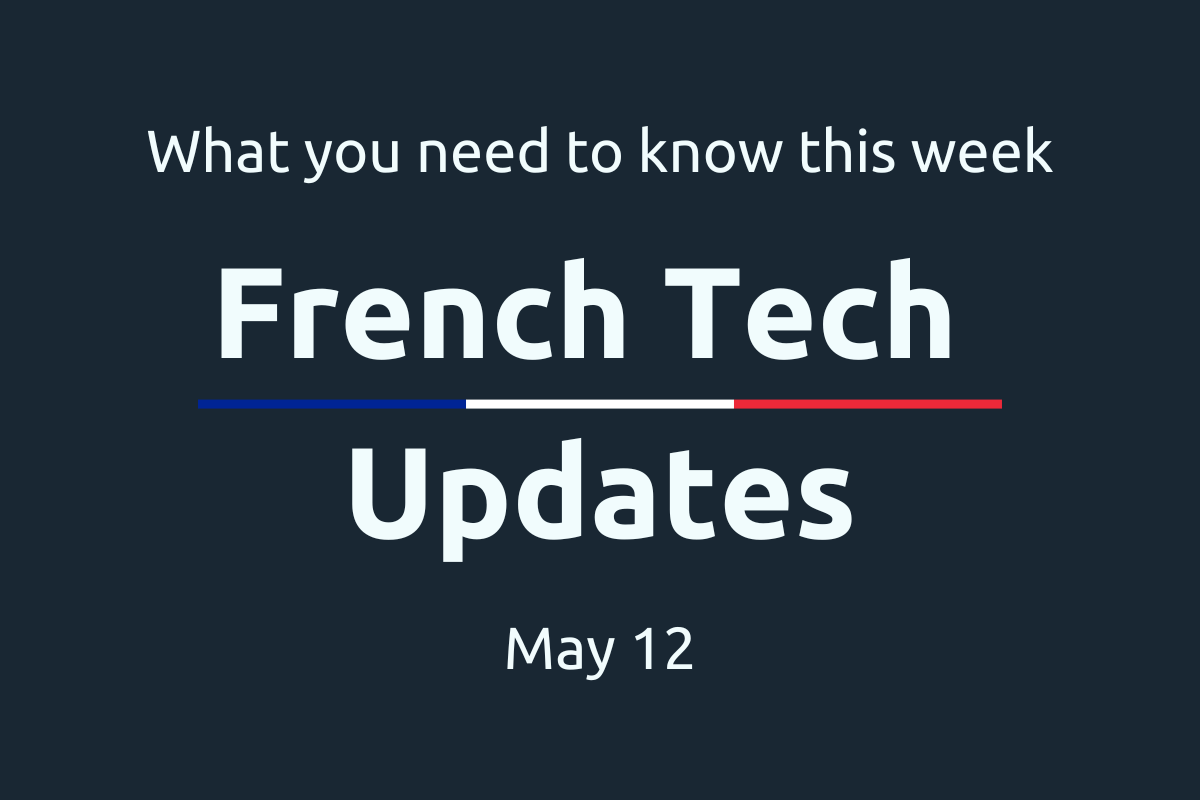
Welcome to French Tech Updates! Your weekly source of startup, VC, and tech news and insights. I’m James, a startup-obsessed American living in Paris.
Can Europe’s brain drain become a brain gain? 💡
An overly simplistic model of the beneficial relationship between research institutions and startups goes something like this:
1️⃣ Publicly funded researchers in universities and labs make technological and scientific breakthroughs.
2️⃣ These institutions partner with businesses to commercialize the results of their research.
3️⃣ Some portion of their discoveries spin off into high-tech startups, which are then funded by private capital.
This model, which can be traced back to the 1800s with Humboldt University (the first state-supported research university in Berlin), has led to many major innovations in the last century, from GPS to fiberglass. Expand this perspective to research institutions in general and you get the development of the Internet, CRISPR gene editing, 3D printing, and the neural networks behind generative AI.
All impressive innovations. But…this model breaks down without the first ingredient: public funding.
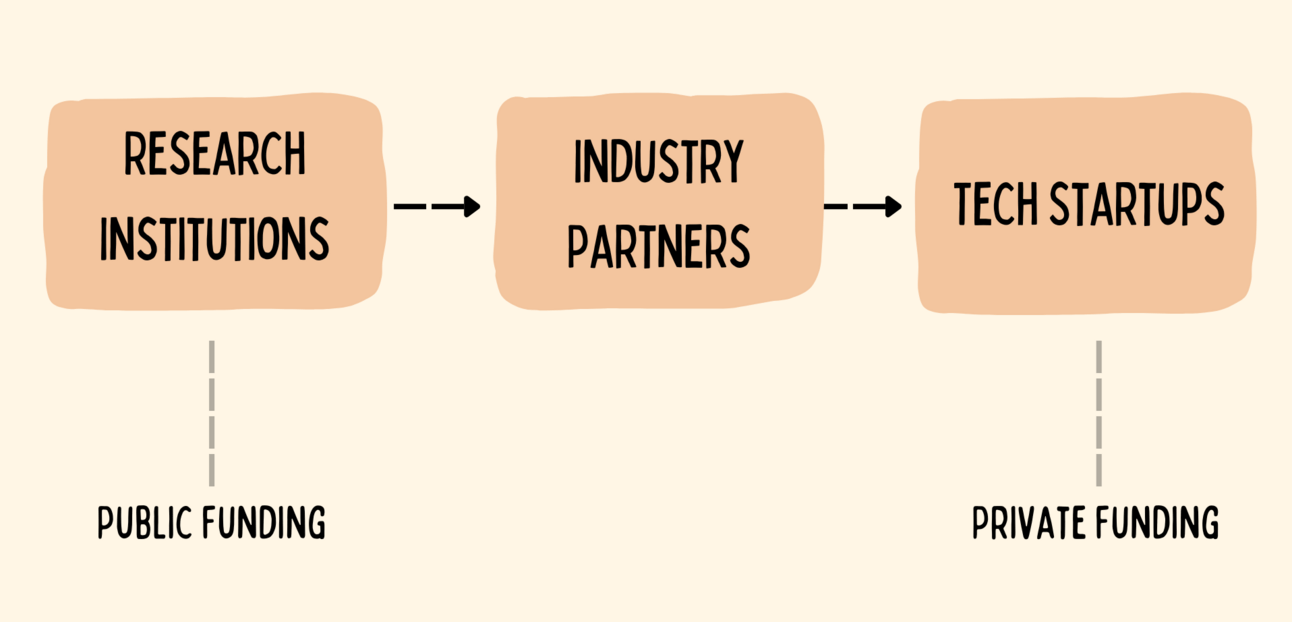
An overly simple illustration of this overly simple model
My home country, the United States, has recently embarked on an unprecedented campaign against research institutions—targeting funding for universities like Harvard and Columbia and independent agencies like the National Institutes of Health and the National Science Foundation.
The impact of these funding reductions, along with the Trump administration’s wide-sweeping anti-immigration stance, may already be showing up. A new report from Semafor shows as much AI talent is leaving the US as is entering for the first time in their data set, which stretches back to 2010.
At the same time, Europe (and notably France) are trying to both retain existing research talent and entice researchers abroad—including Europeans who previously left for the US—to join Europe’s “safe haven for science.”
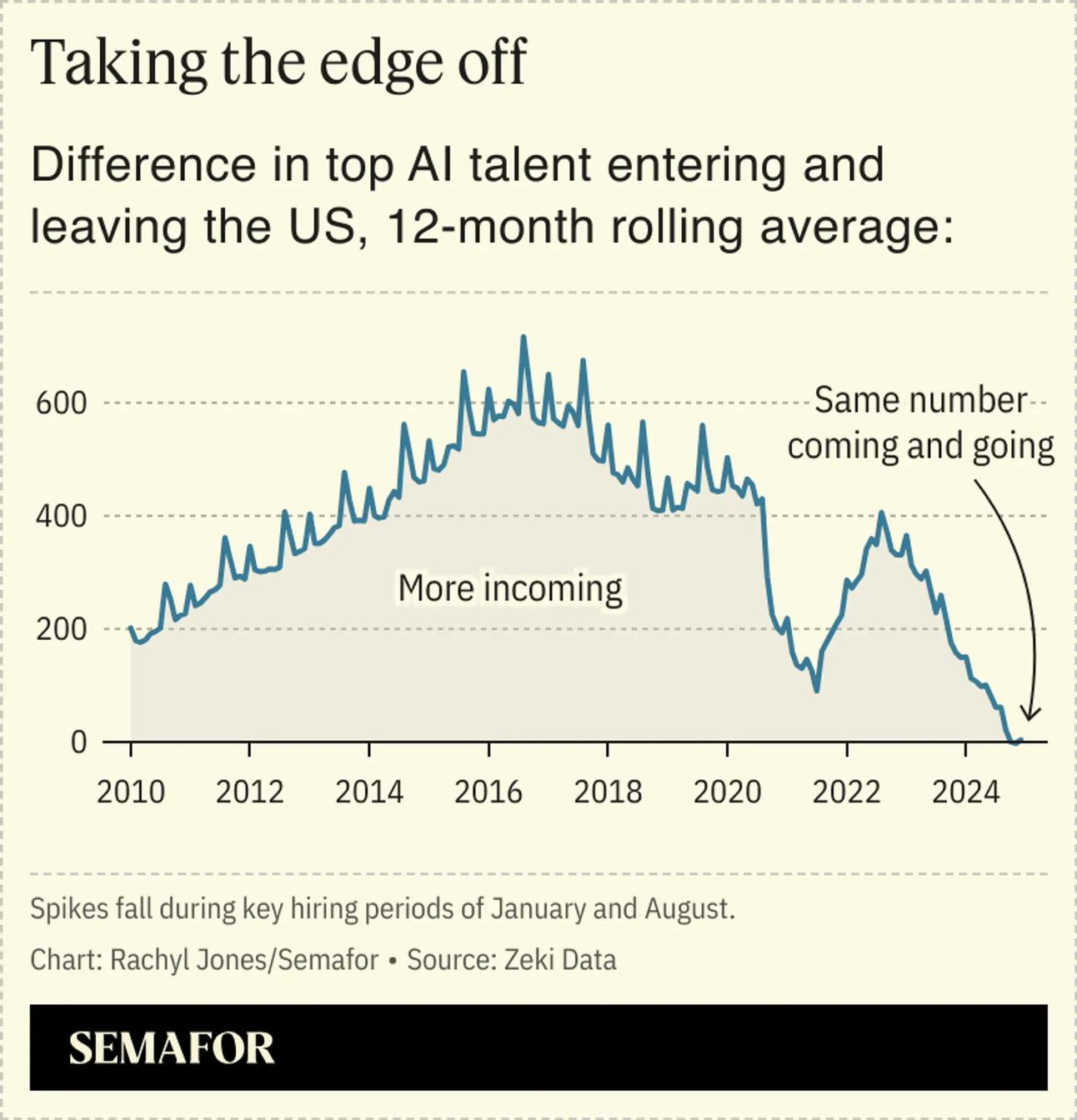
Can Europe win the global race for research talent? Maybe. The chances seem better now that the once-dominant US is apparently running on one leg. Sifted is less optimistic, citing lower salaries and more paperwork as poor motivators to attract researchers to Europe.
If you haven’t already, give French Tech Updates a follow for more on this topic in an upcoming subscriber exclusive.
And with that, let’s jump into this week’s update.
📝 Quiz: What is the average salary for AI researchers in France?
(answer at the bottom of the newsletter)
A.) €51,000
B.) €70,000
C.) €93,000
D.) €105,000
What’s new this week in 🇫🇷
🥊 Mistral takes on Microsoft: Le Chat Enterprise takes aim at tools like Microsoft’s Copilot with a business-focused AI offering. The new product allows users to connect with tools like Google Drive and Gmail and can be deployed to a private cloud for enhanced security. With this launch, Mistral continues to lean into its positioning as an alternative to American AI options—which seems to be resonating with European businesses. At just 2-years-old, the young startup is reportedly targeting €500M in revenue by the end of 2025.
🤖 OpenAI Applications is getting a French CEO: Fidji Simo, current CEO of Instacart and OpenAI board member, announced her new role on LinkedIn after the news was leaked earlier in the week. According to a companion statement from OpenAI, Simo will help “scale traditional company functions as the company enters its next phase of growth.”
🐄 French biotech Faircraft purchased IP from VitroLabs: both companies produce high quality lab-grown leather, with Faircraft targeting the luxury goods industry.
🤝 French Insurer Malakoff Humanis acquires majority ownership of Mon Petit Placement: this acquisition of the Lyon-based fintech will see founder Thomas Perret remain in operational control while continuing to expand Mon Petit Placement’s adoption amongst its target audience of first-time investors.
🌍 Headlines from around the world
🛍️ ChatGPT introduced a shopping feature, here’s how it ranks products (Search Engine Land)
🪦 RIP Skype, Microsoft is shutting down the the 22-year-old video call app (NPR)
🎂 Cursor parent company Anysphere and its 25-year-old co-founders have raised $900M at a $9B valuation for their AI-coding tool (TechCrunch)
🪜 Hasan Sukkar, CEO of AI and automation company 11x, is stepping down from his role (LinkedIn)
🤖 OpenAI’s non-profit will retain control even as they restructure for a potential IPO (NBC)
💸 X makes moves to enable their upcoming payments offering (Social Media Today)
🎰 It looks like you can continue to bet on US elections after all (CNBC)
🥡 DoorDash agrees to acquire Deliveroo and SevenRooms for $5.1B (The New York Times)
👩⚖️ India and OpenAI are locked in a battle over copyright law (Reuters)
🔌 Argentina hopes to attract big tech with nuclear-powered data centers (Rest of World)
🔎 Apple plans move to AI search, ending an era defined by Google (Bloomberg)
🔗 Coinbase is acquiring crypto options trading platform Deribit for $2.9B (WSJ)
Startup To Watch 👀 – Dark
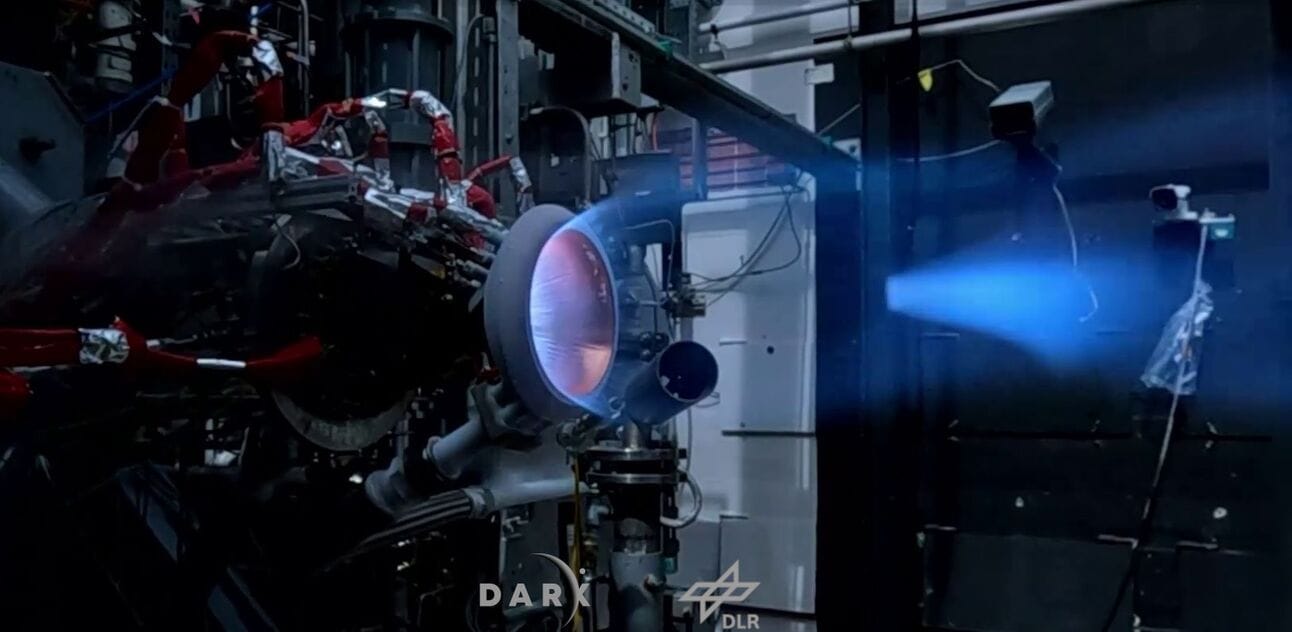
I’ve written a few times now about the surprising lack of funding going towards European defense tech, which received a minuscule 1.8% of all VC investment last year.
Dark is one of the few companies bucking this trend. This private French space defense startup was founded 3 years ago by a team of former missile engineers across Europe to address a growing problem: how to safely defend against orbital threats?
When you hear the phrase “orbital threat” a few images may come to mind. If you’re like me, maybe you think of Star Wars and the epic space battles that took place above planets like Tatooine. Or, maybe you think of films like Armageddon and the asteroid that could have wiped out life on earth if not for the heroic sacrifice of Bruce Willis.
The thing about these movies is that, while entertaining, either of the scenarios they portray would, in practice, generate tremendous amounts of dangerous debris from the various explosions in a low/no gravity environment. At a minimum, that debris would wreak havoc on any satellite systems orbiting the planet. At worst, that debris would survive the fall through the atmosphere—resulting in an unpredictable and deadly orbital bombardment on the ground below.
When it comes to orbital defense, the key question isn’t just how to eliminate threats, but also how to do so safely. This is the challenge that Dark is tackling head on with their upcoming HADES and KRAKEN autonomous interception missions. Along the way, their technology will also address other unique problems facing space defense in Europe.

Dark’s Interceptor is an aircraft-mounted rocket system that fires like a traditional missile system onboard a fixed-wing aircraft but is capable of reaching targets in Earth’s orbit. Their technology combines rocketry, robotics, and AI into the first autonomous space fighter. This unique system will allow Interceptor to quickly reach targets without following the classical orbital cycles required for a ground launched rocket. The aerial launch also means Interceptor can be deployed even in the windy conditions that would scrub a ground launch.
Once in action, Interceptor will be equipped with a dual-function orbital propulsion system that allows for both high-thrust capabilities when Interceptor needs to move quickly to reach a target and precision maneuvering once it locks on. Once it reaches a threat, Interceptor will be able to capture hostile objects using robotic arms and safely de-orbit the threats to secure locations.
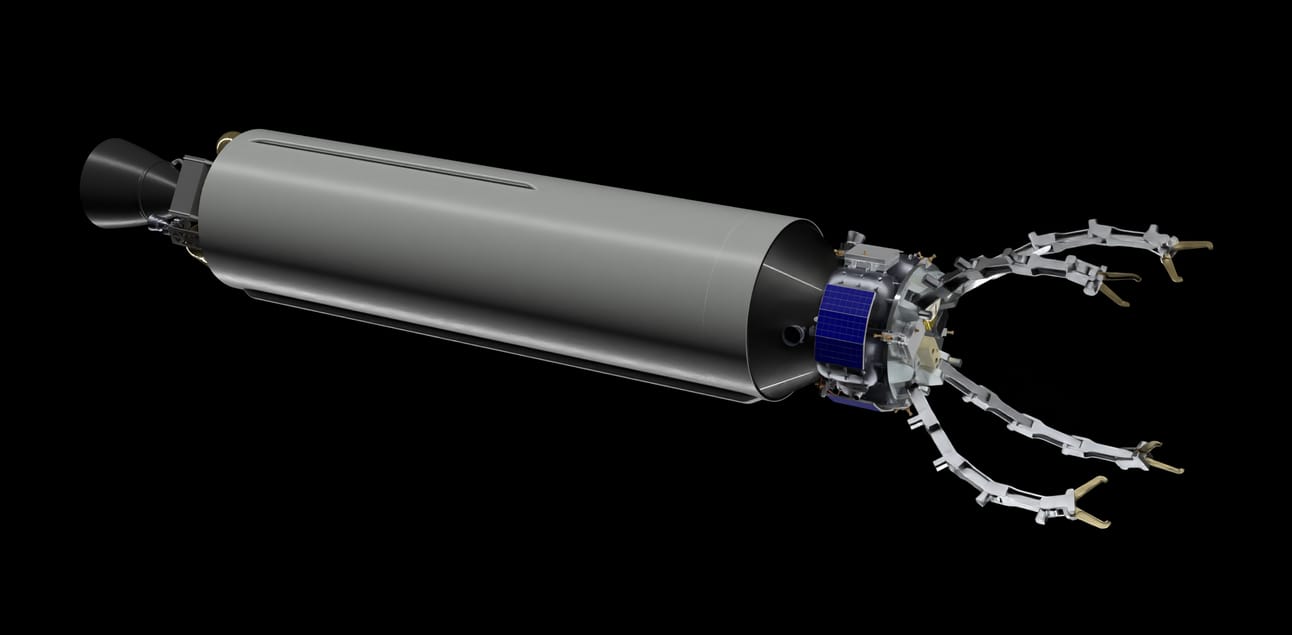
Interceptor’s airborne launch capabilities also yield another advantage over ground-based systems: they can actually be deployed over Europe. Due to infrastructure requirements and orbital logistics, other European space missions currently have to be launched from thousands of kilometers away—sometimes across entire oceans. Dark’s system will equip Europe with a faster, safer, and more reliable method for addressing orbital threats, all of which makes Dark a startup to watch.
New Funding 💶
Following a quiet holiday week, 2 companies announced €2M in the last week, not including rounds of unknown size for Raidium (AI/Radiology), and Softway Medical (HealthTech).
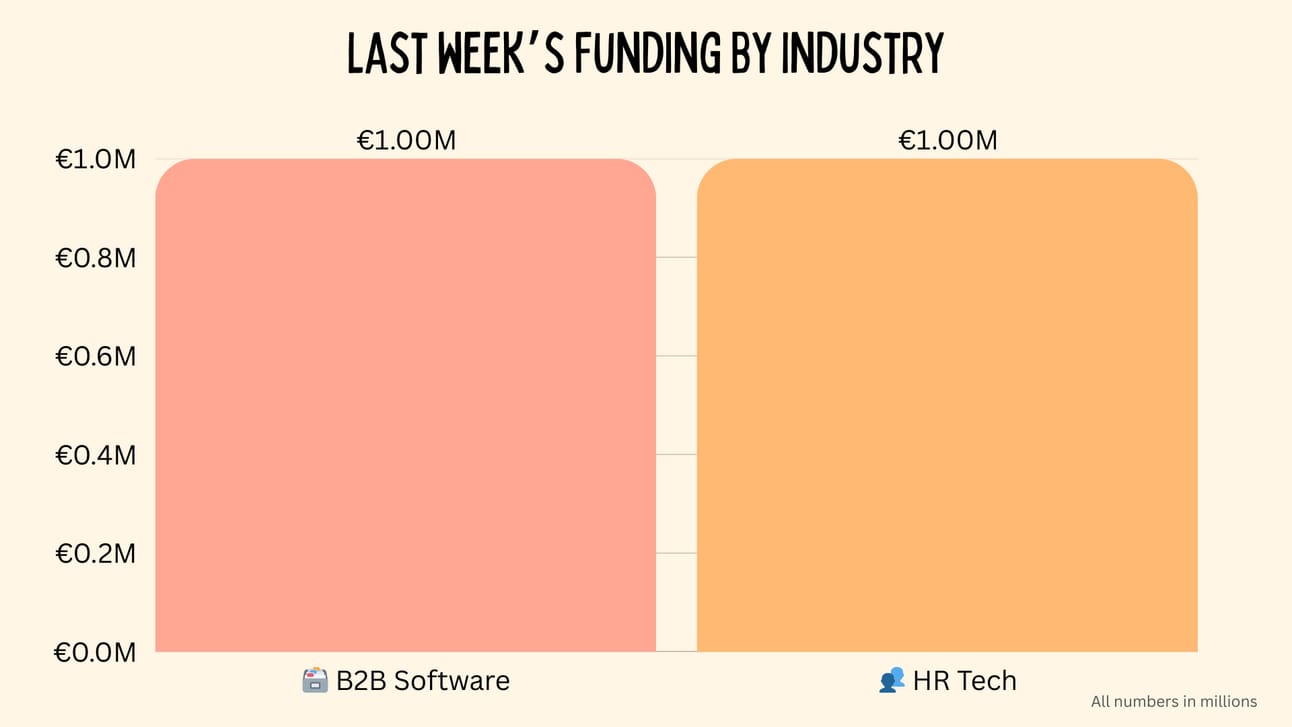
Kalent | €1M | HR Tech
The Nantes-based startup has raised €1M led by Kima Ventures to fund further growth and a planned US expansion. Kalent’s AI copilot helps recruiters find, pre-screen, and schedule meetings with prospective job candidates.
WEMET | €1M | B2B Software
The Toulouse-based creator of NFC enabled business cards raised €1M from a group of 19 business angels. The company’s WeCard allows the company’s 150,000 users to easily exchange contact information in person, sync leads and connections with integrations to popular CRMs, and share their customizable digital profile with new contacts.
Upcoming Events 🗓
All In One Global eCommerce Event – May 13
Creative AI Meetup – May 14
Padel Night by Net & Connect – May 15
Scale Your GenAI – May 15
EDGE Pitch Night – May 19
French/acc #6 – May 20
Climate Coffee in Paris – May 22
Framer Meetup Paris – May 22
La French Stack, Legacy Code – May 23
{Tech: Paris} AI Hackathon – May 24
Paris Women & Climate Afterwork - May 26
Afterwork French Tech x CESI – May 28
AI for Good: From Creation to Exit ft. Buster.ai founder Julien Mardas – June 3
IoT Innovation Day – June 4
VivaTech – June 11-14
Startup World Cup Paris – June 12
The Paris AI Conference 2025 – June 16
French Tech Connect 2025 – July 3
Interesting Jobs 👩💻
What Else I’m Reading 📚
Why OpenAI isn’t worth $300B, and most AI companies are worth 0 (The Thesis by Leonis)
Secondaries are (finally) a core part of seed VC (The Fund CFO Newsletter)
The decline of UK equity crowdfunding (Bloomberg)
The future of data storage might be ceramic glass that can last thousands of years (Techspot)
People are losing loved ones to AI-fueled spiritual fantasies (Rolling Stone)
Don’t raise VC money without understanding exactly what you’re signing up for (Peter Walker)
Cool things I’m playing with 🪁
FindAMeal – AI for finding restaurants. Sooo many people have tried this idea before, let’s see if this one is different.
Circo – Lead sourcing and enrichment from 500 million profiles in their database.
UI Builder – A web page mockup tool directly in Chrome
IdeaApe – See what people have to say about any topic
gigi – the app that knows everyone, just launched by Clara Gold
TechpressoWhy you’ll like it: Daily updates on the latest tech and AI news in an easy-to-read format. Stay in the know while finishing your morning coffee. | Trends.vc Why you’ll like it: Short summaries of breaking topics in the world of startups and Venture Capital. An easy way to find new ideas and opportunities. |
Quiz Answer: B.) €70,000
That’s according to data from Salary Expert and digitaldefynd, which also show AI researcher salaries averaging €49,000 for entry level positions up to €86,000 for researchers with 8+ years of experience. This average put France slightly behind neighbors like Germany (€75,000) and the UK (€78,000).
